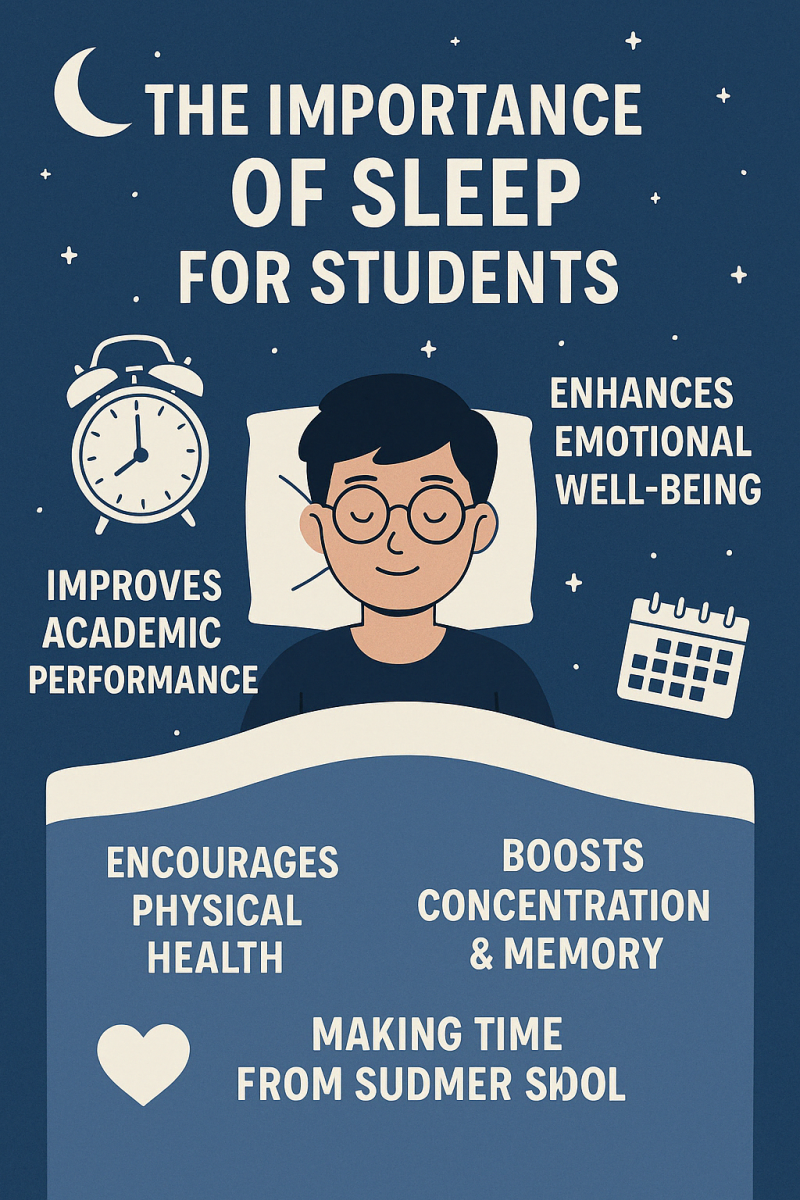
Sleep can affect a person’s everyday life, from physical health to mental well-being. It is especially important for students, particularly those in middle and high school. A good night’s rest influences academic performance, emotional stability, and overall quality of life. However, the pressure of academic responsibilities, extracurricular activities, and social issues often leads to disrupted sleep schedules.
According to the National Sleep Foundation, “high school students (ages 14–17) need about eight to ten hours of sleep each night. For young adults (ages 18 to 25), the range needed is between seven and nine hours.” Yet, studies show that the majority of students don’t meet these recommended hours.
According to the CDC, many students are affected by this lack of sleep:
For middle school students, “about 6 out of 10 students (57.8%) did not get enough sleep on school nights.” And for high school students, “about 7 out of 10 students (72.7%) did not get enough sleep on school nights.”
Of course, not getting enough sleep for your brain to actually rest has many consequences. According to the Harvard Summer School, these include “daytime sleepiness, fatigue, irritability, short temper, mood changes, trouble coping with stress, and difficulty focusing, concentrating, and remembering,” as well as “weight gain and obesity, cardiovascular disease, and type 2 diabetes.”
The Perelman School of Medicine states, “Sleep research from the last 20 years indicates that sleep does more than simply give students the energy they need to study and perform well on tests. Sleep actually helps students learn, memorize, retain, recall, and use their new knowledge to come up with creative and innovative solutions.”
If you seriously struggle with not getting enough sleep on a regular basis, here are some tips from Harvard Summer School that could help:
Limit caffeine close to bedtime. College students should also avoid alcohol, which disrupts quality sleep.
Avoid electronic screens (phones, laptops, tablets, desktops) within an hour of bedtime.
Engage in daily physical activity, but avoid intense exercise within two hours of bedtime.
Establish a sleep schedule. Be as consistent as possible with your bedtime and wake-up time, and get exposure to morning sunlight.
Establish a “wind-down” routine before bed.
Limit the use of your bed for activities other than sleep (e.g., watching TV, working, or eating).
Sleep is an important part of a student’s daily routine. Making time for sleep and following healthy habits can help students feel more ready for the day and perform better in school. Taking care of your sleep is a smart way to take care of yourself.
